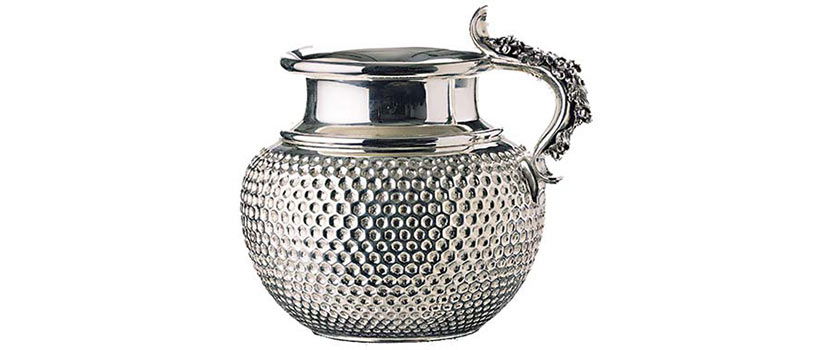BLOG
Vision, Values and Projects: A Q&A with the WSG Team
Jacopo Mazzeo Wine Culture

Earlier last month, I ran my first webinar for Wine Scholar Guild (WSG) — an overview of what it means to be a wine journalist and what it takes to turn this into a viable and successful career choice. Ahead of a series of stories I’m going to be regularly writing for the blog and a brand-new podcast due to launch later this year (more on this further down), the webinar’s topic was the ideal means to introduce myself to the WSG audience.
With so much in store for the coming months, I now wanted to get a deeper understanding of what the WSG is all about, its philosophy, and its ongoing projects. So I caught up with WSG President Julien Camus (JC), Director of Education Lisa Airey (LA), and Director of Sales and Marketing Preston Mohr (PM), to talk upcoming developments, authenticity, and the value of specialization.
You're celebrating your 17th birthday. How have things changed since when WSG first launched?
LA Seventeen years ago, the student wanted to learn about the subject matter. Today, students want to have a working knowledge of the facts and put them to practical application against new experiences and situations. They’ve moved from “what” to “why.” It is a significant shift. They also come to our programs with a stronger fundamental wine knowledge and a more sophisticated palate. Each year, the questions they pose show a deepening level of critical thinking and a desire to understand the flavors in the glass and how they got there. As a result, we are not only presenting core facts, but focusing on connecting all of the dots and at every level, be it historical, climatological, geological, topographical, etc.
JC We had a vision when Initiating a new study and certification organization…to be student-centric, to make our post-nominals a point of pride, to give those post-nominals true international market equity. Seventeen years later, we have received industry recognition for our programs and the work of our team members. Every single day is an affirmation of the core values that have been defining us since day one: empowerment, excellence, authenticity, diversity, community, innovation, and support. We intend to hold true to these values moving forward.
PM WSG has gone global. In addition to the online programs that we offer to a world-wide audience, we partner with over 110 brick and mortar wine schools throughout the world, in 30 countries on five continents. Our Approved Program Providers teach from the same WSG-developed presentations and are supplied with uniform teaching materials. WSG truly has a study format to suit all learning styles. Students who do not have a school close to them, or prefer the flexibility of online learning, can study our programs online. While those who would opt for hands-on classroom instruction and tasting can study closer to home.
Rather than adding more wine countries to your study program, you focus on regularly enhancing the depth of the current offer. Why this choice?
LA WSG’s reputation depends on the strength and accuracy of our existing programming. So, we need to batten down the hatches before sailing off on the next great wine adventure.
No program is ever in “park”, but rather always in development. We have a tremendous student feedback loop, for instance. When our students express a need, whether it be a more detailed map or electronic flashcards, we execute against those needs.
I understand there’s lots of new stuff coming up. What exactly should people expect to see over the coming months?
PM Indeed, we have lots of exciting projects in the pipeline! The way we consume information has changed dramatically since our beginnings and we’re innovating how we communicate with our own audience as a result.
Firstly, we’re thrilled to be partnering with you, Jacopo, on our forthcoming new podcast and on regularly scheduled blog posts revolving around the people and places that make wine unique and special. The concise and informal podcast will be the ultimate place for students and enthusiasts to stay current on the developments in the world of wine. Also, watch out for shorter, on-demand member content that can easily fit into your busy schedule, and our exciting new community forum — a place to connect with one another, discuss, exchange and enhance your knowledge outside of a structured classroom setting. The majority of this community space will be free and open to all, but we will also have a members-only section with special guests and exclusive content. Last but not least, will also see the launch of the new WSG website with an improved look and feel.
You’re also working on a new Tasting Diploma program. What’s that about, and how does it reflect your philosophy?
JC The Tasting Diploma program we are developing is in complete sync with WSG’s ethos. It allows committed students to build on the foundations they have acquired and take their skills to the next level. Currently, students usually come to us with an analytical tasting mindset that, for instance, allows them to tell a Cabernet Sauvignon and a Pinot Noir apart or quantify the acidity. When tasting ten wines of similar origin and from the same variety however, they might have a very hard time writing a different tasting note for each. But authentic wines with a sense of place will be different from each other regardless of origin and grape variety. Think of terroir as the music score and the vigneron as a pianist. As good the score might be, each musician will interpret it differently. With our new tasting program we will allow students to connect the dots between viticultural practices, winemaking, terroir, vintage and how that translates into the glass. To achieve that, we are adopting a multi-disciplinary approach, relying on the most recent research in fields ranging from neuroscience to biology. Basically, the new Tasting Diploma program will empower students to hone their palate and allow them to gain a rich and meaningful wine lexicon while promoting and advocating for authentic wines of place.
Your values include “authenticity” and you mention authentic wines with a sense of place… what does authenticity mean to WSG?
PM An authentic wine clearly transports us to the place where it was made and allows the drinker to commune with those who made it, via the glass. This all sounds very grand and lofty, but even the simplest wines can be authentic in this regard.
JC While there is a need and market for all types of wine, some are industrial products, others are the result of real craftsmanship: authentic wines that express a sense of place, their terroir. It also happens that those producing these authentic wines tend to rely on more environmentally and socially responsible practices. We want our students to be exposed to these wines and advocate for them. But the tasting methods currently available do not promote critical thinking nor provide taster with the tools to really set those wines apart. That’s why we are developing the Tasting Diploma program. It’s also why we teach in great detail about the fascinating diversity of the various terroirs of France, Italy and Spain and feel our students deserve to taste wines that truly express this diversity and be able to articulate the fine nuances and rich experience they offer.


